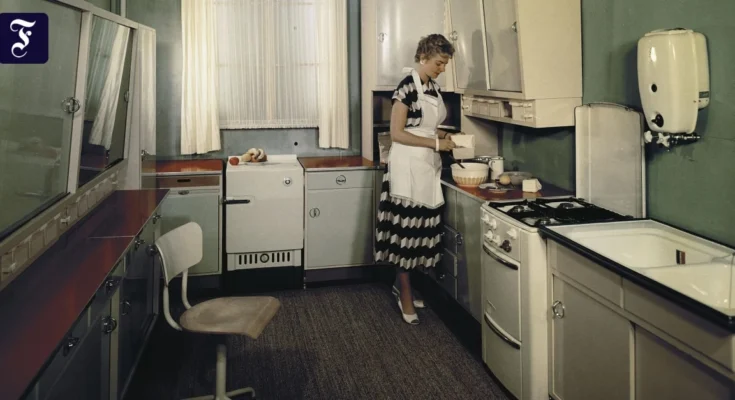“Now we see traders’ wives on social media making their own butter without even using electricity,” said Nicole Deitelhoff. In his words, the political scientist touched on the fact that influencers on Instagram display images of women from the 1950s. Does this phenomenon indicate a “vibe shift”, a change in people’s self-image?
The re-election of Donald Trump to the Oval Office, Mark Zuckerberg’s desire for “more masculine energy” for Meta or fashion on the catwalk to become even more feminine were also discussed online with the hashtag “Vibe Shift”. But it’s not just America that is experiencing change. The black-red government led by Friedrich Merz inherited the traffic light coalition. And instead of the “welcome culture” of 2015, today there is a heated discussion about “cityscape”. Germany is also undergoing change.
That’s why Deitelhoff, together with publicist Michel Friedman, immediately took the debate to the debate club they moderated in Frankfurt. Together with Zeit editor Ijoma Mangold and Ferda Ataman, the federal government’s anti-discrimination commissioner, they discuss whether there is a change in the zeitgeist in Germany.
Right-wing cancel culture
Ferda Ataman answered the question about changing the course of the zeitgeist clearly, yes. At least that is his perception as an anti-discrimination officer. “I grew up in a country where I didn’t feel like I needed to be a feminist,” Ataman said. More and more women are now being asked in job interviews whether they want to have children and how they want to combine motherhood with their work.
Instead of left-wing culture, there is now right-wing cancel culture, says Zeit editor Ijoma Mangold. This is certainly not good. However, he does not see these developments as entirely negative. In the 2010s, a “behavioral orthodoxy” began to emerge. Now it can be said again that migration is not something that happens to us, but something that must be managed.
Convinced of the morally correct path
Based on the examples mentioned by the guests, is the turnaround in the zeitgeist a step towards the past, asked the moderator. Mangold suggests a different reading. Until now, he said, society was convinced that they were on the morally correct path of social progress. In this belief, new anti-discrimination and emancipation measures are constantly being introduced without realizing that the majority of society does not approve of them. From here emerged the right-wing counter-public.
It was only with Trump’s re-election last November that people woke up. “Over the last few years, we have slowly realized, while rubbing our eyes, that society is not working the way we imagined,” Mangold said.
Deitelhoff and Friedman objected that, far from the so-called woke topics discussed by the guests, such as the reversal of anti-discrimination measures, there was also continuity in the debate. “Weren’t 2015, 16 and 17 a big exception” when it comes to the topic of escape and migration, Deitelhoff asked. At the turn of the millennium, the same debates as today took place regarding the direction of a mass influx of refugees on the one hand and the tightening of asylum laws on the other. Women’s roles are never without problems, he said.
So what is actually different this time? For once, the discord club agrees on the answer to this question. Social media, with content that is filtered and tailored to the user, encourages the emergence of one’s opinion. At the same time, it makes it easier to claim control over public discourse, discussants say. “What I see is what is. I don’t have to accept anything else,” Deitelhof concluded.
At the same time, various groups increasingly represent different positions. This polarization is exacerbated by the fact that opinions are becoming radicalized – a consequence of reduced understanding of one’s own world and increasing distrust of the existing system.
Two students from the Frankfurt comprehensive school in Ried, Kristina Veronika Ilk and Charlotte Frühauf, who, as usual in the argument club format, took over moderation from Deitelhoff and Friedman in the last half hour of the discussion, got to the heart of the challenge in their final question to the discussants: How do you recreate the same discussion culture? “Be respectful and let people debate more,” Friedman says.



